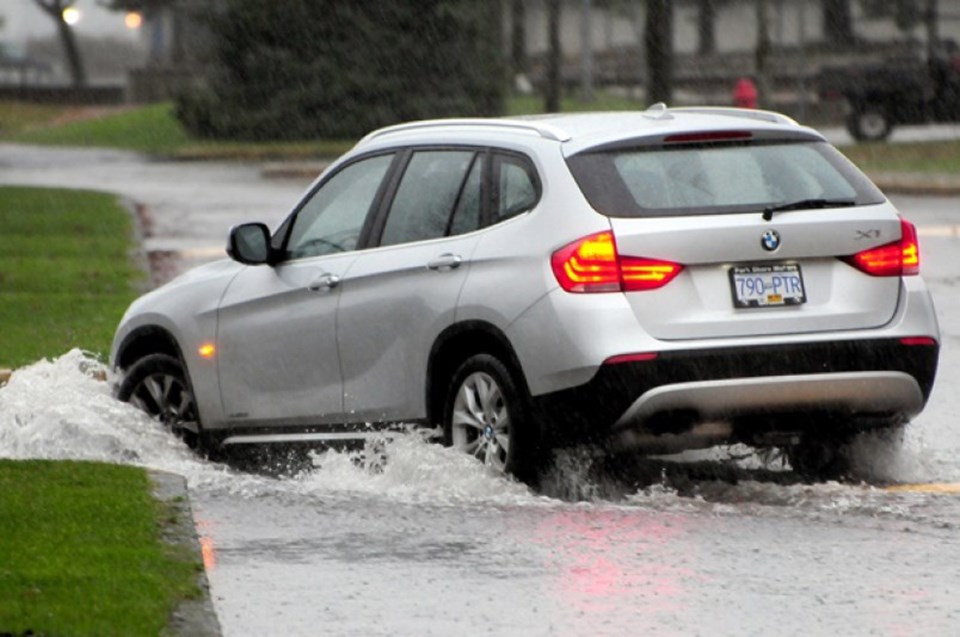The plants and the streams aren’t the only things that stand to benefit from the coming rains. Auto body shops will probably also do well.
North Vancouver RCMP and Road Safety at Work are reminding the public that streets and highways will be extra slippery when the first significant rainfall in months arrives this weekend.
“Any time we've gone through a period of dry weather, that allows oil deposits from vehicle exhaust to build up on the roadway, and then when the first rain comes, the road can be quite slick,” said Sgt. Peter DeVries, North Vancouver RCMP spokesperson.
As of Thursday, the forecast calls for light rain starting on Friday and lasting into next week. That means everyone should be extra cautious in their commute, DeVries said, keeping in mind that suddenly accelerating or braking will likely make tires spin and lose their bite.
“Please drive defensively. Give yourself lots of room between vehicles. Make sure your wipers are in good order and make sure your tires have good tread on them. All of those things can have an impact on your ability to avoid a collision,” he said.
Road Safety at Work, which is an initiative of the Justice Institute of BC. and WorkSafeBC, is taking the occasion to remind North Shore drivers that it’s time to start bracing for winter conditions. The average number of casualties and crashes due to driving too fast for the conditions more than doubles from fall to early winter, the group says.
“No matter how much experience you have, driving in rain, fog, snow, or icy conditions can be treacherous all around the North Shore,” said campaign spokesperson Trace Acres. “The best way to help keep yourself and your passengers safe is to start preparing for winter now and plan ahead. Waiting until the first storm hits is too late.”
The group is calling on North Shore drivers to ensure they have winter tires that display the three-peaked mountain/snowflake symbol with at least 3.5 mm of tread. Drivers also need to adjust their attitudes behind the wheel in the later months of the year.
“Driving in winter conditions is a risk every single time you get behind the wheel,” says Acres. “We all need to understand that and do our part to improve our winter driving behaviours and practices.”



